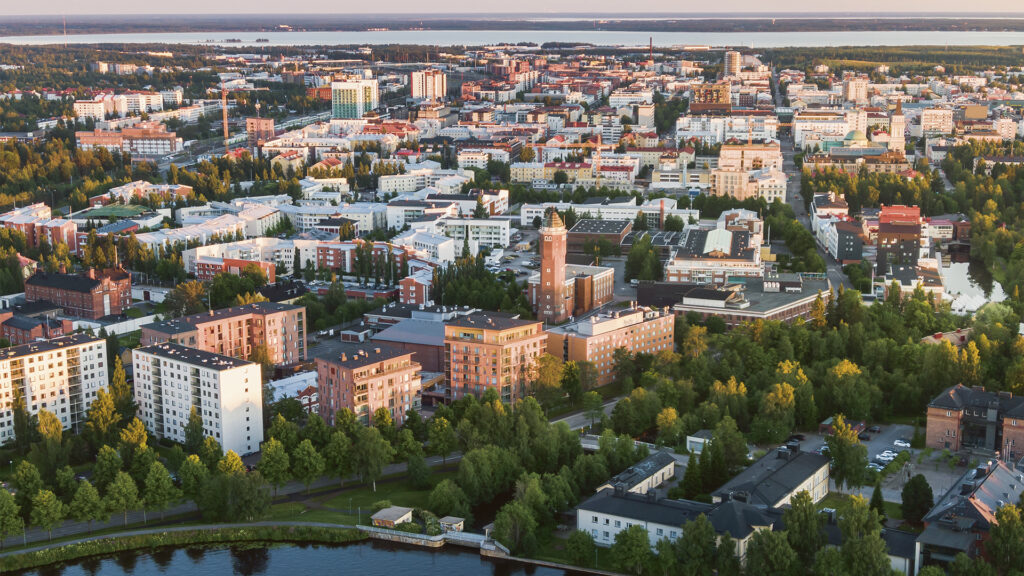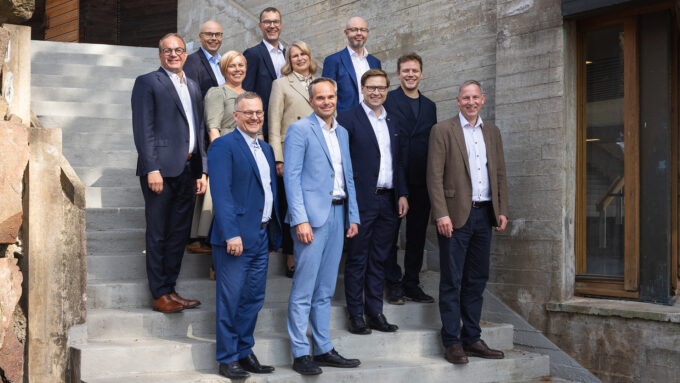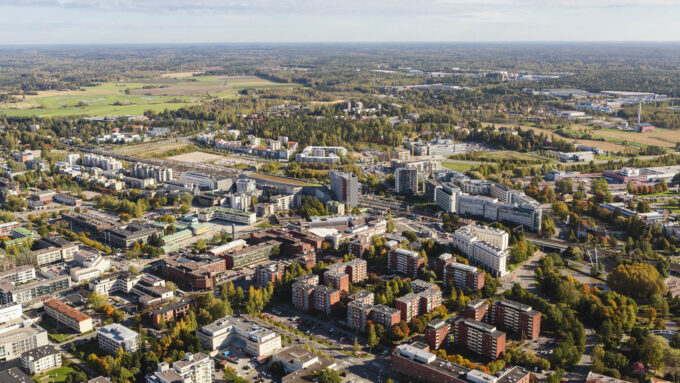Urban land use has a significant impact on both the productivity of business life and the functionality of the labor and housing markets. Land use has the opportunity to define the future vitality of cities, how the city grows and develops. Smooth zoning enables investments and sustainable growth, when projects are smoothly launched.

Our goal
- Zoning and permit processes must be streamlined. Processes must be predictable and transparent. Let's reduce the duplication of plan levels and create a genuine one-stop-shop principle for planning. The possibilities offered by digitization must be fully utilized.
- In the preparation phase of the plan, we invest in proactive participation and reduce plan complaints. Regarding the site plan, the right to appeal should be limited to only those whose rights are affected. In order to increase predictability, the right of appeal should be subject to a reminder during the consultation phase of the plan.
- We are looking for new implementation methods to support the municipality's land use and zoning. The land owner's right of initiative and the process of partnership and contract zoning will be recorded in the Land Use Act. Cooperation between a private operator and the municipality increases zoning resources, productivity and speeds up zoning processes
- Let's plan enough and make sure there is enough plot land so that the annual need for housing production can be met. According to VTT, the predicted population growth and keeping Finland on the growth track require the construction of at least 35 apartments annually. Without adequate and correct housing supply, the labor force does not move and regional inequality increases. Read more about VTT's Housing Demand 000-2020 report.
- The role of the state and large urban regions in the MAL agreements will be kept unchanged. A joint growth vision of the state and large urban areas will be developed from MAL agreements, in which cities are obliged to use land more efficiently and the state to invest in transport connections within and between urban areas.
Streamlining planning and permit processes
Formula processes are long-lasting and multi-phased. Their duration is often impossible to estimate, which causes major challenges in construction projects. Too detailed regulation of buildings slows down the planning process, leads to exemptions and delays, and increases construction costs. Formulas should define only land-use or urban goals, not the means to achieve them. It is unsustainable that the need for additional construction in cities is constantly increasing, but their permit processes are often more laborious and the risk of appeals is high.
Plan complaints as a brake on projects
One of the things that significantly hinders the formula process is the complaints made about the formulas and the resulting delays. Complaints often delay socially significant construction projects and cause many kinds of harm to the municipality's citizens, the local business community, the vitality of the municipality, and developers. In order to reduce plan appeals, investment should be made in inclusive planning, resources for administrative rights should be increased, and the right to appeal should be limited in certain respects.
Reform of the Regional Use Act
In this election period, the reform of the Land Use Act must be carried out and the reform of the Land Use and Building Act, which was left half way in the previous election period, must be completed. The leading goal of the reform of the Regional Use Act should be simpler, smoother and more customer-oriented zoning than before, which will help strengthen economic growth and the carrying capacity of the national economy, as well as enable the investments required for a clean transition.
Current land use and zoning

Cities and the Construction Industry Federation of Finland outlined joint actions to stop nature loss

The Land Use Act is progressing positively for builders
Statement on the government's proposal regarding the revised Land Use Act
Careful preparation of the procurement creates the conditions for a successful construction project
Do I have to vote in municipal elections?
The municipal election panel considered increasing the vitality and attractiveness of Kuopio
More information

Anu Kärkkäinen
Director, Economic Policy Affairs
anu.karkkainen@rt.fi + 358 50 337 6699Building Construction Industry Association
